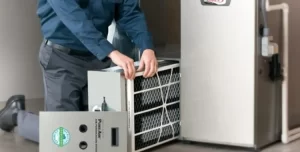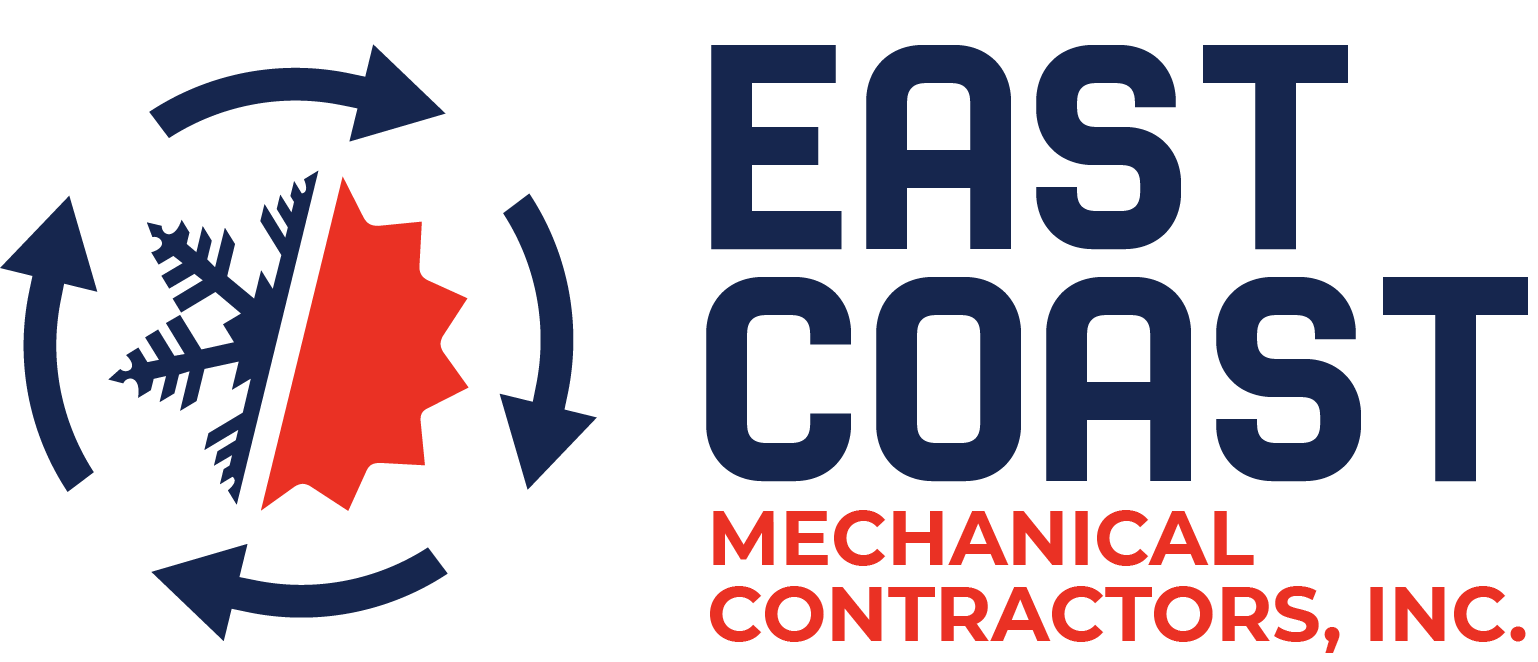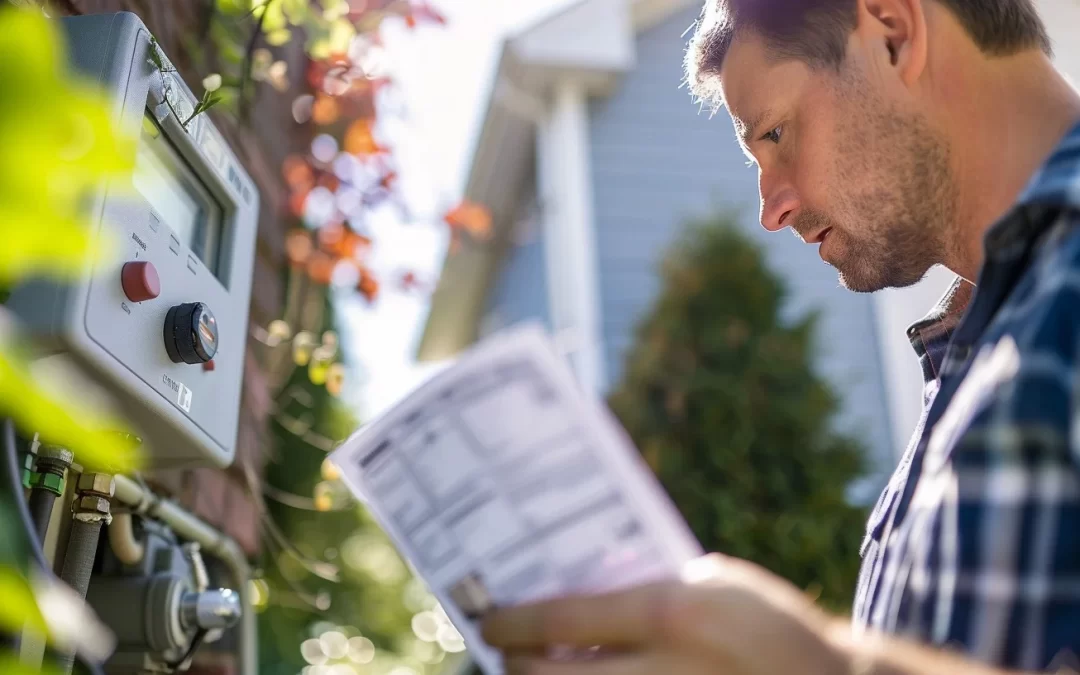Your HVAC system is the heart of your home’s comfort, working tirelessly to provide heating and cooling throughout the year. However, like any machine, it can become inefficient over time, leading to wasted energy and increased utility bills. Many homeowners don’t realize their system is consuming more power than necessary until their energy costs skyrocket. By understanding the warning signs of an inefficient HVAC system, you can take proactive steps to upgrade and save money in the long run. In this guide, we will explore common signs that indicate your HVAC system wasting energy, the benefits of upgrading, and how to choose the right system for your home in New Jersey.
💡 Why Energy Efficiency Matters
An energy-efficient HVAC system offers multiple advantages beyond just cutting down on electricity costs. Here’s why it matters:
- ✨ Lower Utility Bills: Efficient systems use less power to maintain indoor comfort.
- 🌍 Environmental Benefits: Reduced energy consumption lowers your carbon footprint.
- 🛠 Longer Equipment Lifespan: Properly functioning systems experience less wear and tear.
- 💧 Improved Indoor Air Quality: Modern systems offer better filtration, keeping dust and allergens at bay.
⚡ Signs Your HVAC System Wasting Energy
📈 1. Rising Energy Bills 
If your monthly utility bills have been increasing without any changes in your usage, your HVAC system could be the culprit. Older systems or those with faulty components often work harder to maintain temperature, consuming more power.
🏡 2. Inconsistent Temperature Control
Do some rooms feel too hot while others remain too cold? Uneven heating or cooling is a clear indication that your system is struggling to distribute air properly. This may be due to duct leaks, an aging system, or an incorrectly sized unit.
⚖ 3. Frequent Repairs
Are you constantly calling for HVAC repairs? If your system frequently breaks down, it might be more cost-effective to replace it with an energy-efficient model rather than continue paying for repairs.
🔊 4. Strange Noises and Odors
Unusual sounds like rattling, banging, or screeching could signal mechanical problems. Similarly, musty or burning smells might indicate mold buildup or electrical issues, both of which can reduce efficiency.
⏰ 5. Your System Is Over 10 Years Old
Most HVAC systems have a lifespan of about 10-15 years. If your system is over a decade old, it is likely consuming more energy than necessary. Newer models meet higher efficiency standards and can significantly reduce your energy costs.
⚡ 6. Excessive Cycling
If your HVAC system turns on and off frequently, it may be short cycling due to a faulty thermostat, clogged filters, or an improperly sized unit. This leads to unnecessary energy consumption and added strain on the system.
🌬 7. Poor Indoor Air Quality
If you notice increased dust, allergens, or humidity issues, your HVAC system may not be filtering air efficiently. Upgrading to a modern unit can help improve air quality and create a healthier indoor environment.
🛠 Benefits of Upgrading Your HVAC System
Switching to an energy-efficient HVAC system offers numerous advantages:
- 💸 Reduced Energy Costs: Newer units consume less power while maintaining performance.
- 💨 Better Airflow and Comfort: Advanced air distribution ensures even heating and cooling.
- ✨ Smart Features: Many modern systems include programmable thermostats for optimal energy management.
- ♻ Eco-Friendly: Lower energy consumption contributes to environmental sustainability.
📝 How to Choose the Right Energy-Efficient HVAC System
Selecting the best HVAC system for your New Jersey home requires careful consideration of several factors:
📊 1. Size and Capacity
A unit that’s too small won’t heat or cool your home effectively, while an oversized system will waste energy. Professional assessment ensures the perfect fit.
⭐ 2. Energy Ratings (SEER and AFUE)
- SEER (Seasonal Energy Efficiency Ratio): The higher the rating, the better the efficiency for cooling systems.
- AFUE (Annual Fuel Utilization Efficiency): A higher percentage indicates better heating efficiency.
🖥 3. Smart Thermostat Compatibility
Smart thermostats help regulate temperature and energy consumption automatically, reducing waste.
👷 4. Professional Installation
Proper installation by HVAC specialists ensures peak performance and longevity of the system.
🔍 Conclusion
Recognizing the signs of an inefficient HVAC system can save you from unnecessary energy expenses and discomfort. Upgrading to a modern, energy-efficient unit is an investment that pays off in lower utility bills, better indoor air quality, and enhanced home comfort.
📢 Contact Us for a Free HVAC Assessment
At East Coast Mechanical, we specialize in providing high-quality, energy-efficient HVAC solutions for residential and commercial properties in New Jersey. If your HVAC System Wasting Energy and you’re ready to upgrade, our team is here to help!
📍 Location: 5133 W Hurley Pond Rd #A, Wall Township, NJ 07727
📞 Phone: 732-751-8877
📧 Email: ecmcecmc@aol.com
🌐 Website: https://ecmchvac.com
🏡 Enhance your home’s efficiency and comfort with an HVAC upgrade today!

